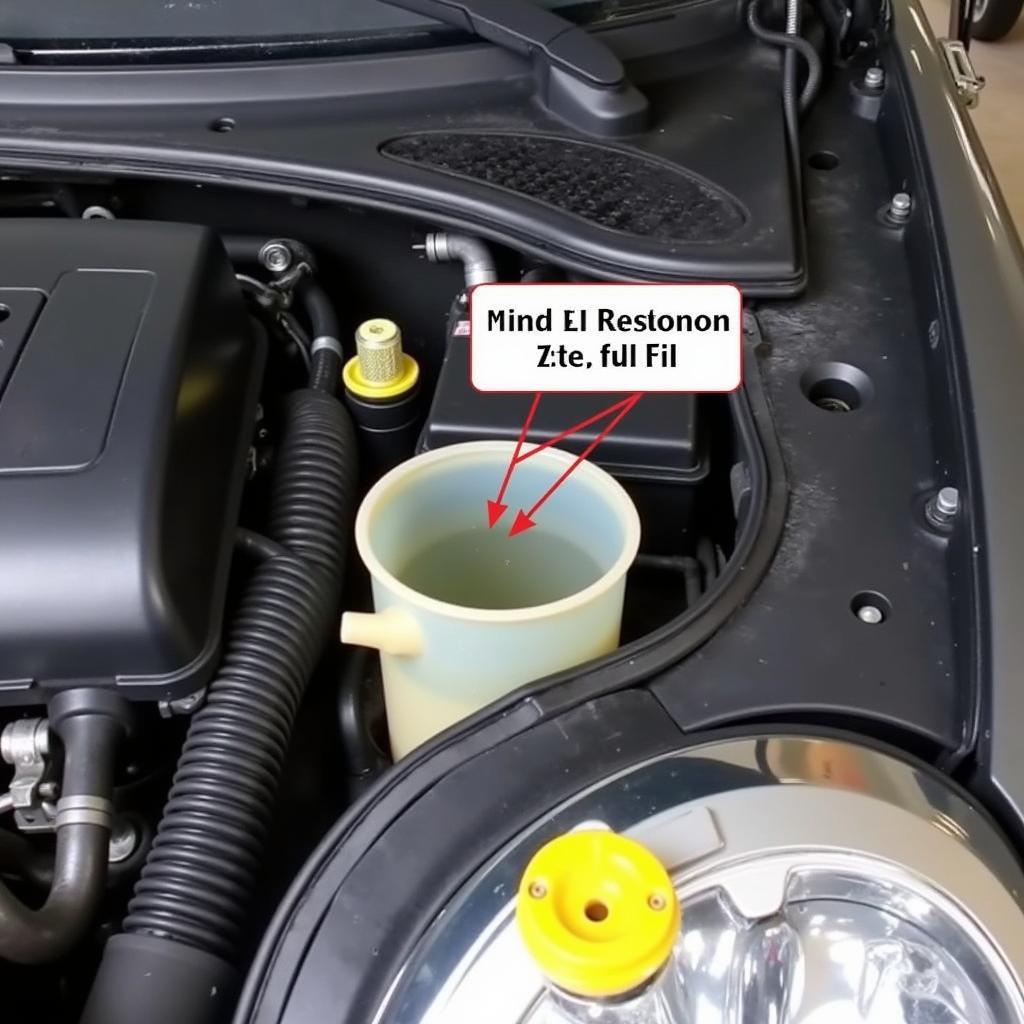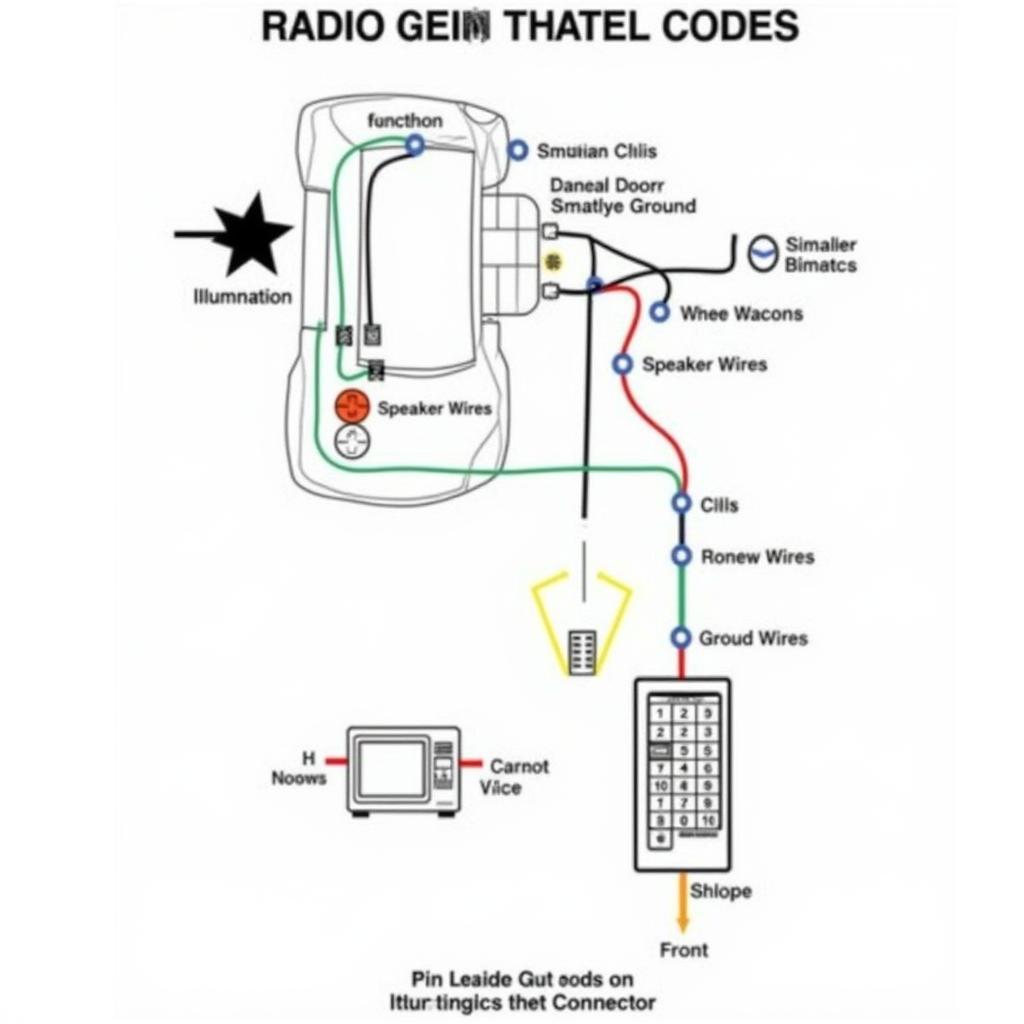The dreaded 2004 Mini Cooper brake warning light can be a source of anxiety for any driver. Understanding what triggers this light and how to address the underlying issue is crucial for maintaining your Mini’s safety and performance. This comprehensive guide dives into the common causes, diagnostic procedures, and potential solutions for the 2004 Mini Cooper brake warning light.
If your brake warning light illuminates, it signals a potential problem within your braking system. It could be as simple as low brake fluid or as complex as a malfunctioning ABS module. Ignoring this warning can lead to dangerous driving conditions and costly repairs. Sometimes the issue might just require a simple reset, like the one described in our guide on mini cooper reset brake pad warning light.
Understanding the 2004 Mini Cooper Brake Warning Light System
The brake warning light is part of a complex system designed to alert you to potential braking issues. This system monitors several components, including brake fluid level, brake pad wear, and the Anti-lock Braking System (ABS). Knowing which component is causing the issue requires a systematic diagnostic approach. Have you considered checking if it’s related to your brake pads? Our article on mini cooper s brake pad warning light might offer some insights.
Common Causes of the 2004 Mini Cooper Brake Warning Light
Several factors can trigger the brake warning light in your 2004 Mini Cooper.
-
Low Brake Fluid: This is the most common cause. A leak in the brake lines, worn brake pads, or a failing master cylinder can all lead to low brake fluid levels.
-
Worn Brake Pads: Your Mini is equipped with brake pad wear sensors that trigger the warning light when the pads reach a certain thickness.
-
Faulty ABS Sensors: A malfunctioning ABS sensor can disrupt the ABS system and illuminate the brake warning light.
-
ABS Module Issues: Problems with the ABS module itself can also trigger the warning light.
-
Parking Brake Engaged: While less serious, a partially engaged parking brake can also activate the light.
 2004 Mini Cooper Brake Fluid Reservoir
2004 Mini Cooper Brake Fluid Reservoir
Diagnosing the Problem
Diagnosing the cause of the brake warning light requires a systematic approach. Start by checking your brake fluid level. If it’s low, top it off and inspect for leaks. Next, check your brake pads for wear. If they appear thin, they likely need replacement. If the brake fluid and pads are fine, consider checking if your brake pad warning light is simply stuck, as discussed in our guide on brake pad warning light stays on.
For more complex issues like ABS sensor or module problems, it’s best to consult a qualified mechanic or utilize remote diagnostic services.
Resetting the Brake Warning Light
After addressing the underlying issue, the brake warning light may need to be manually reset. This often involves using a diagnostic tool. For information on resetting the brake pad warning light specifically, you can refer to our guide on 2004 mini cooper s brake pad warning light reset.
Preventing Future Brake Warning Light Issues
Regular maintenance is key to preventing brake warning light issues. This includes regular brake fluid checks and flushes, timely brake pad replacements, and periodic inspections of the entire braking system. Maintaining your seatbelts also contributes to overall safety, so be sure to address any seatbelt warning lights promptly, as detailed in our article about seat belt warning light meaning.
“Regular brake system checks are crucial for maintaining safety and preventing unexpected issues,” says John Smith, Automotive Engineer specializing in European vehicles. “Ignoring warning lights can lead to significantly more expensive repairs down the road.”
Conclusion
The 2004 Mini Cooper brake warning light is a critical safety feature. Understanding its potential causes and taking prompt action to address them can help you avoid costly repairs and maintain a safe driving experience. Don’t ignore this important warning signal.
“Modern cars are equipped with sophisticated self-diagnostic systems,” adds Jane Doe, Senior Diagnostic Technician. “Leveraging remote diagnostic and programming services can offer a quick and efficient way to identify and address complex issues like ABS faults.”
Addressing the 2004 Mini Cooper brake warning light promptly ensures a safe and enjoyable driving experience.
“Early diagnosis is key to minimizing repair costs and preventing potential safety hazards,” concludes John Smith.

